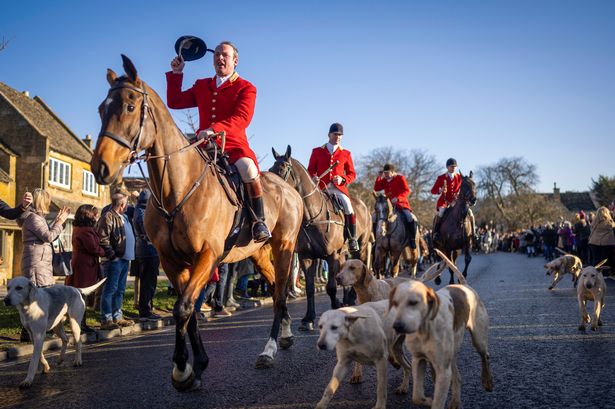The time-honored tradition of Boxing Day hunts, a spectacle deeply woven into the fabric of British rural life, is once again approaching. These festive gatherings, featuring riders in scarlet coats astride their horses, accompanied by hounds, evoke images of a bygone era. However, the practice remains deeply divisive, a flashpoint in the ongoing debate over animal welfare and the interpretation of tradition. While proponents view the hunts as a celebration of heritage and an essential part of countryside management, critics contend that they serve as a thinly veiled cover for illegal fox hunting, outlawed in England and Wales since 2004. This year, the controversy is amplified by mounting pressure on the government to deliver on its promise to strengthen the ban on trail hunting, a practice intended to simulate hunting but which animal welfare groups argue is frequently used as a smokescreen for illegal fox pursuits.
Trail hunting, introduced after the ban on traditional hunting, involves laying a scent for hounds to follow. This scent, theoretically, mimics the trail of a fox, allowing hunts to continue without harming animals. However, critics argue that the practice is often conducted in areas where foxes are known to be present, raising concerns that the hounds could inadvertently chase and kill live foxes. The League Against Cruel Sports, a prominent animal welfare organization, has documented numerous instances of suspected illegal hunting under the guise of trail hunting. They point to evidence of hounds pursuing foxes, the presence of terriermen – traditionally used to flush out foxes from their dens – and the reluctance of some hunts to provide details of their trail routes, fueling suspicions of covert illegal activity. These allegations have intensified calls for stricter regulations and increased enforcement to ensure adherence to the hunting ban.
The government, aware of the growing controversy surrounding trail hunting, has pledged to strengthen the ban. While the specifics of these proposed changes remain unclear, they are expected to address the ambiguity surrounding the practice and make it more difficult for illegal hunting to take place under the guise of trail hunting. Campaigners are urging the government to act swiftly and decisively, arguing that the current legislation is inadequate and poorly enforced. They advocate for stricter penalties for those found guilty of illegal hunting and greater transparency in the regulation of trail hunting activities. The delay in implementing these changes has led to frustration amongst animal welfare groups, who accuse the government of bowing to pressure from pro-hunting lobbies.
The debate over hunting is deeply ingrained in British society, reflecting differing perspectives on animal welfare, tradition, and the role of the countryside. Proponents of hunting argue that it plays a vital role in pest control, managing fox populations and preventing damage to livestock. They also emphasize the economic benefits of hunting, supporting local businesses and providing employment in rural communities. Furthermore, they view hunting as an integral part of rural culture, a tradition passed down through generations that should be preserved. These arguments, however, are often challenged by animal welfare groups who argue that alternative, humane methods of pest control are available and that the economic benefits of hunting are overstated.
The heart of the contention lies in the ethical considerations surrounding the treatment of animals. Animal welfare groups argue that hunting inflicts unnecessary suffering on foxes, subjecting them to a terrifying and often brutal death. They emphasize the sentience of foxes, their capacity to feel fear and pain, and the inherent cruelty of pursuing them with hounds. This perspective clashes with the view of many hunters who believe that the quick kill delivered by hounds is more humane than other methods of fox control, such as shooting or trapping. This fundamental disagreement on the ethics of hunting lies at the core of the ongoing debate and continues to fuel passionate arguments on both sides.
As the Boxing Day meets approach, the tension surrounding the issue of hunting is palpable. The spectacle of the hunts will undoubtedly draw both supporters and protesters, highlighting the deep divisions within society on this contentious issue. The pressure on the government to fulfill its promise to strengthen the ban on trail hunting continues to mount, and the coming months will be crucial in determining the future of hunting in the British countryside. The outcome of this ongoing debate will have significant implications for animal welfare, the interpretation of tradition, and the balance between rural livelihoods and the protection of wildlife in the UK.














